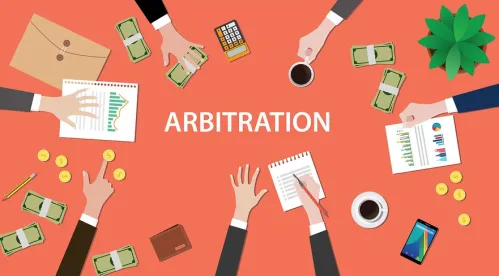The U.S. District Court for the Northern District of Texas recently granted a defendant debt collection agency’s motion to compel arbitration in a TCPA case. See Bow v. Ad Astra Recovery Servs., Inc., No. 18-0510-G, 2018 WL 3455510 (N.D. Tex. July 18, 2018) (available here). In doing so, the court enforced an arbitration agreement that the debt collection agency had never signed, on the ground that the agreement expressly referenced the agency as an “affiliate” of the two lenders that had signed the agreement. The court’s decision provides helpful guidance for enforcing arbitration agreements, particularly in the context of a loan agreement that may lead to debt collection efforts—and potential TCPA exposure.
Plaintiff Shari Bow (“Plaintiff”) alleged that she entered into a loan agreement with two companies, Integrity Texas Funding, LLC and SCIL Texas, LLC (collectively, “Speedy Cash”). After finalizing the loan, Speedy Cash allegedly sent Plaintiff’s account to Defendant Ad Astra Recovery Services, Inc. (“Ad Astra”) for collection. Plaintiff alleged that Ad Astra repeatedly called her cellular phone over a period of three months using an automatic telephone dialing system, despite her numerous requests for Ad Astra to stop calling. Plaintiff’s Complaint asserted claims under the TCPA, the Fair Debt Collection Practices Act (“FDCPA”), and the Texas state law equivalent of the FDCPA.
In response to the Complaint, Ad Astra moved to compel arbitration of Plaintiff’s claims. Ad Astra relied on the arbitration clause contained within Plaintiff’s loan agreement with Speedy Cash—an agreement Ad Astra had never signed. Ruling on the motion, the court determined that Plaintiff had agreed to arbitrate her dispute with Ad Astra, notwithstanding Ad Astra’s status as a nonsignatory. The court followed the reasoning of a Fifth Circuit case, Sherer v. Green Tree Servicing LLC, 548 F.3d 379 (5th Cir. 2008), which had rejected the notion that a district court must apply the doctrine of equitable estoppel when determining a nonsignatory’s rights under an arbitration clause. Rather, the Sherer court had concluded that a nonsignatory may compel arbitration where the terms of the agreement at issue clearly identify when the plaintiff may be compelled to arbitrate with a nonsignatory.
Here, the loan agreement did just that; it required Plaintiff to arbitrate “all claims . . . against [Speedy Cash], . . . and/or any of . . . its employees, agents . . . or affiliated entities.” (Emphasis added.) Accordingly, the court reasoned, Ad Astra could invoke the arbitration agreement as an “affiliated entity” by virtue of its contract with Speedy Cash for the collection of delinquent accounts. Further, the loan agreement expressly referenced Ad Astra by name; it stated that the arbitration clause governed any claims asserted against Speedy Cash “or any ‘related party’” and further defined “related party” as including Speedy Cash’s “parent companies, subsidiaries, and affiliates of ours (including Ad Astra Recovery Services, Inc.), . . .” As such, the court concluded that Plaintiff had agreed to arbitrate her claims against Ad Astra.
Although every arbitration agreement must be carefully reviewed before a party seeks to enforce it, this is particularly true for a nonsignatory, which typically must rely on theories of equitable estoppel, agency, and third-party beneficiary, among others, in order to enforce an agreement it has not signed. But at least in the Fifth Circuit, Bow illustrates how careful drafting of an arbitration clause, including a specific reference to an affiliated nonsignatory, may provide an additional avenue for enforcement.





 />i
/>i

